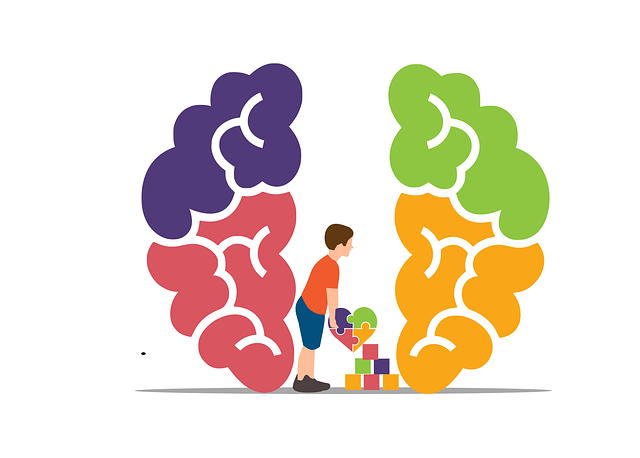Positive thinking is a powerful tool for managing conditions like Superior Sexual Dysfunction Therapy (SSDT). By identifying and challenging negative thought patterns through cognitive behavioral therapy (CBT) and practicing daily positive affirmations, individuals can gain resilience and optimism. Incorporating mindfulness exercises and self-awareness practices supports emotional healing, strengthens social connections, and fosters overall mental wellness, enabling folks to navigate life's challenges with a more positive outlook despite diagnosises like SSDT.
Discover the transformative power of positive thinking with our comprehensive guide. Learn how cultivating an optimistic mindset can significantly improve mental health, boosting overall well-being. We explore effective strategies like identifying and challenging negative thoughts, incorporating daily positive affirmations, and mindfulness techniques to enhance your perspective. Additionally, we provide robust solutions for overcoming obstacles, ensuring you maintain a resilient, positive mindset even in the face of challenges. Explore these practices as potential tools in Superior Sexual Dysfunction Therapy for a more fulfilling life.
- Understanding Positive Thinking and Its Impact on Mental Health
- Identifying and Challenging Negative Thought Patterns
- Incorporating Daily Positive Affirmations: A Step-by-Step Guide
- The Role of Mindfulness in Enhancing Positive Thinking
- Overcoming Obstacles: Strategies for Sustaining a Positive Mindset
Understanding Positive Thinking and Its Impact on Mental Health

Positive thinking is a powerful tool that can significantly influence mental health and overall well-being. It involves cultivating optimistic attitudes, focusing on personal strengths, and interpreting challenges as opportunities for growth. By embracing mind over matter principles, individuals can overcome negative thought patterns associated with conditions like Superior Sexual Dysfunction Therapy (SSDT). This shift in perspective encourages resilience and promotes healthier coping strategies.
Empathy building strategies and coping skills development play a crucial role in reinforcing positive thinking. Engaging in activities that foster self-compassion and understanding allows individuals to navigate stressors more effectively. Through these practices, people can enhance their emotional intelligence, improve mental fortitude, and lead more fulfilling lives, even in the face of adversity or challenging diagnoses like SSDT.
Identifying and Challenging Negative Thought Patterns

Identifying negative thought patterns is a crucial step in cultivating positive thinking. Many people struggle with persistent negative thoughts that can hinder their mental well-being and even impact physical health, as seen in conditions like Superior Sexual Dysfunction Therapy. These thoughts often manifest as automatic responses to certain situations or triggers. For instance, someone might automatically assume they’ll fail an upcoming exam, leading to feelings of anxiety and doubt. Recognizing these patterns is the first step towards change.
Challenging negative thoughts involves critically examining their validity and realism. Are these thoughts based on facts or just fears? Using evidence-based stress reduction methods like cognitive behavioral therapy (CBT) can help individuals replace negative thought cycles with more positive and realistic ones. Social skills training and practicing mind over matter principles can also empower individuals to reframe challenging situations, fostering a sense of resilience and optimism.
Incorporating Daily Positive Affirmations: A Step-by-Step Guide

Incorporating daily positive affirmations into your routine can be a powerful tool for enhancing mental wellness and even supporting Superior Sexual Dysfunction Therapy. Start by choosing a quiet, peaceful moment each day—whether it’s morning or evening—to set an intention for positivity. Begin with simple statements like, “I am worthy of love and happiness” or “I embrace my strengths.” Repeat these affirmations out loud, allowing yourself to fully absorb their meaning. Consistency is key; make this practice a non-negotiable part of your daily self-care routine.
Over time, tailor your affirmations to specific areas you’d like to focus on. For instance, if you’re working through past traumas or low self-esteem, incorporate statements that address these issues directly. Affirmations can also be used as a form of crisis intervention guidance during challenging times. Mental health policy analysis and advocacy have shown the profound impact of positive thinking exercises, highlighting their potential to foster resilience and overall mental wellness in various contexts.
The Role of Mindfulness in Enhancing Positive Thinking

Mindfulness plays a pivotal role in enhancing positive thinking, which is crucial for overall well-being and even Superior Sexual Dysfunction Therapy. It involves being fully present in the moment, observing thoughts and feelings without judgment, and cultivating a sense of calm awareness. By focusing on the here and now, individuals can reduce the grip of negative thought patterns that often lead to stress, anxiety, and low mood. This practice allows for better emotional regulation, making it easier to navigate life’s challenges with resilience and optimism.
Incorporating mindfulness into daily routines through techniques like meditation, deep breathing exercises, or mindful walking can significantly contribute to Stress Reduction Methods and Self-Care Practices. Moreover, mindfulness training has been shown to improve Social Skills Training by enhancing empathy, compassion, and emotional understanding, thereby fostering healthier relationships and a more positive social environment.
Overcoming Obstacles: Strategies for Sustaining a Positive Mindset

Overcoming obstacles is a significant aspect of sustaining a positive mindset, especially when navigating challenges like Superior Sexual Dysfunction Therapy. It’s crucial to understand that emotional regulation plays a pivotal role in this journey. By employing strategies such as mindfulness and self-awareness exercises, individuals can gain a deeper understanding of their thoughts and emotions, enabling them to manage and transform negative patterns.
One effective approach is to engage in emotional healing processes, which involve acknowledging and processing past traumas or stressors that might hinder positive thinking. Through therapy and self-reflection, individuals can learn to reframe negative perspectives, fostering resilience and a more optimistic outlook. Self-Awareness Exercises are particularly valuable tools in this regard, helping one recognize triggers, develop coping mechanisms, and ultimately cultivate a mindset that is better equipped to face life’s obstacles head-on with enhanced emotional intelligence.
Implementing positive thinking exercises can significantly enhance mental well-being, offering a powerful tool for navigating life’s challenges. By understanding the impact of negative thought patterns and learning strategies like mindfulness and affirmations, individuals can foster a more optimistic mindset. These practices, when incorporated into daily routines, have the potential to revolutionize one’s approach to life, even providing relief from conditions like Superior Sexual Dysfunction Therapy by promoting emotional resilience and overall mental health.














